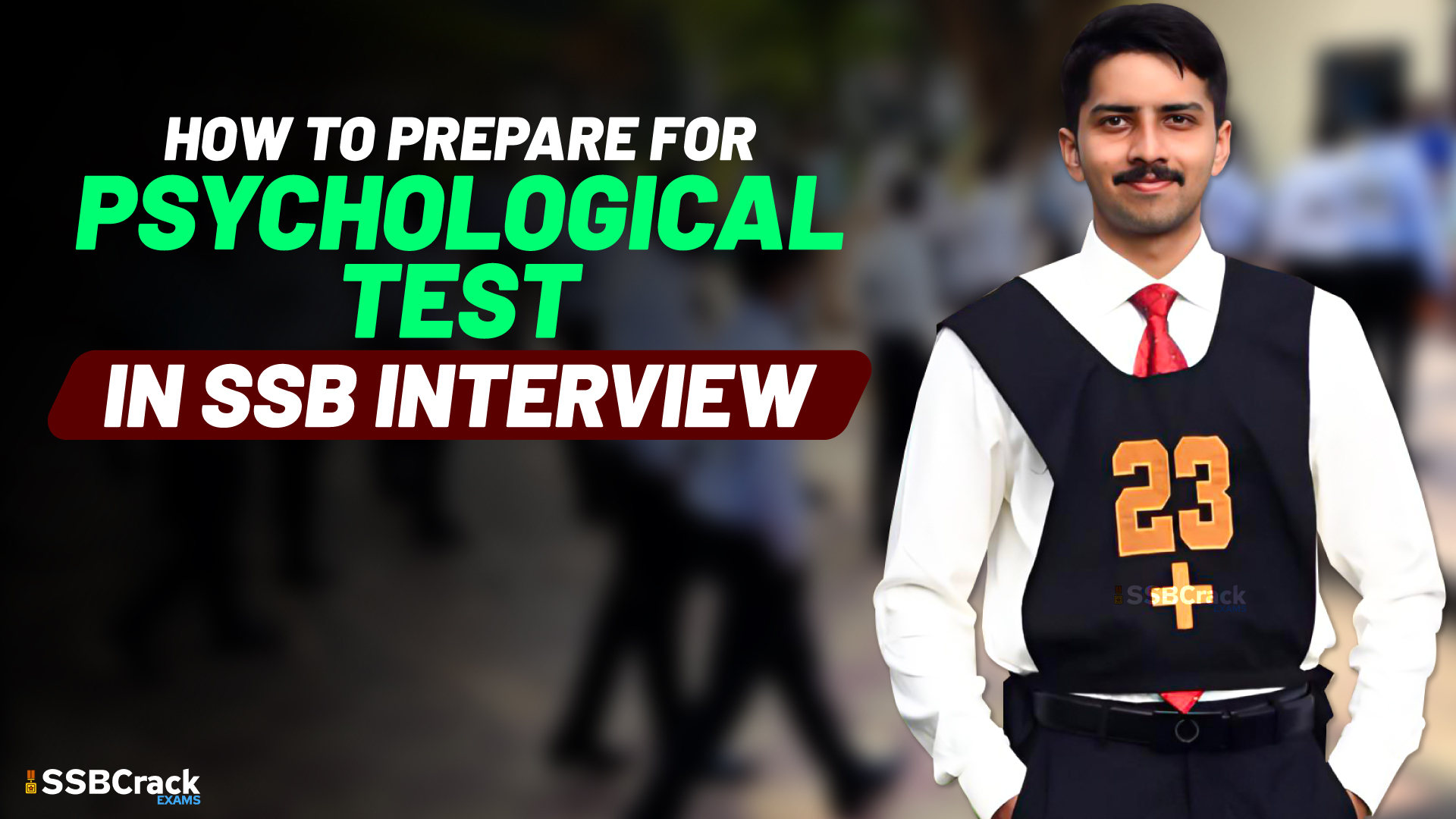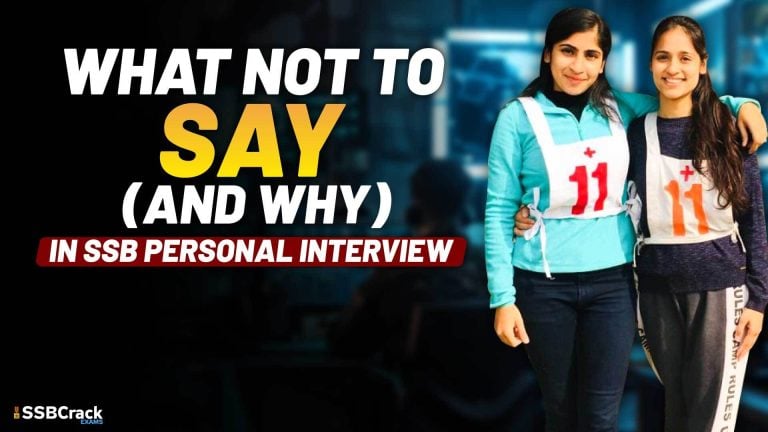Psychological Tests in the Service Selection Board (SSB) interview are designed to delve deep into a candidate’s personality, emotional intelligence, and cognitive abilities. Excelling in these tests is crucial, as they provide assessors with insights into your suitability for a career in the Armed Forces. Here’s a comprehensive guide on how to prepare effectively for the psychological tests in the SSB interview.
1. Understand the Types of Psychological Tests:
- Familiarize yourself with the various psychological tests conducted during the SSB interview, including the Thematic Apperception Test (TAT), Word Association Test (WAT), Situation Reaction Test (SRT), and Self-Description Test (SDT).
- Understand the specific objectives and parameters each test aims to evaluate.
2. Develop a Positive Mindset:
- Cultivate a positive and optimistic mindset.
- Psychological tests often aim to assess your response to challenging or ambiguous situations, so maintaining a positive outlook is crucial.
3. Practice Visualization Exercises:
- Since tests like the TAT involve storytelling based on a given image, practice visualization exercises.
- Regularly engage in creating narratives from pictures to enhance your ability to construct meaningful and positive stories.
4. Enhance Writing Speed and Accuracy:
- Time management is crucial in psychological tests.
- Practice writing quickly while maintaining accuracy. This skill is particularly essential for tests like WAT and SRT, where responses need to be spontaneous.
5. Build a Rich Vocabulary:
- An expansive vocabulary enhances your ability to express thoughts effectively.
- Regular reading and vocabulary-building exercises will improve your verbal proficiency, aiding you in tests like WAT and SDT.
6. Analyze Sample Responses:
- Review and analyze sample responses from individuals who have successfully cleared the SSB interview.
- Understand the qualities and attributes highlighted in their responses, and use them as benchmarks for your own preparation.
7. Reflect on Personal Experiences:
- Psychological tests often involve self-reflection.
- Reflect on your personal experiences, achievements, challenges, and how they have shaped your character. This introspection will aid you in responding authentically.
8. Seek Feedback from Mentors:
- Engage with mentors or individuals experienced in the SSB interview process.
- Seeking feedback on your responses and approaches can provide valuable insights for improvement.
9. Simulate Test Conditions:
- Practice under simulated test conditions to build familiarity.
- Create an environment that mimics the conditions of the actual SSB interview, including time constraints and the pressure of the assessment.
10. Stay True to Yourself: – Authenticity is paramount in the psychological tests. – Avoid contrived responses and stay true to your personality, experiences, and values.
11. Develop Emotional Resilience: – Tests like TAT often involve scenarios that evoke emotional responses. – Practice maintaining emotional resilience and composure in the face of challenging or emotional stimuli.
12. Stay Updated on Current Affairs: – Some psychological tests may incorporate elements related to current affairs. – Stay informed about national and global events to ensure you can integrate relevant information into your responses.
Conclusion: Preparation for psychological tests in the SSB interview is a holistic process that combines cognitive abilities, emotional intelligence, and self-awareness. By understanding the intricacies of each test, cultivating a positive mindset, and practicing under simulated conditions, you can navigate these assessments with confidence. Remember, the psychological tests aim to reveal your authentic self and your ability to handle the challenges of military life. Approach the preparation process with dedication, self-reflection, and a commitment to showcasing your inner strengths during the SSB interview.







